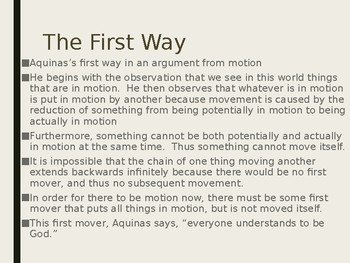· Apologetics > Apologetics in Christianity > God · 5 min read
Unlocking the Divine: Biblical Insights Into the Ontological Argument
Explore the Ontological Argument, a philosophical inquiry into the existence of God based on reason and logic. Delve into the intricacies of this compelling argument.

The Ontological Argument: Understanding the Existence of God
The ontological argument for the existence of God is a logical argument that seeks to prove God’s existence through pure reasoning. Unlike other arguments, such as the teleological and cosmological arguments that rely on observation and evidence, the ontological argument is based solely on logical deductions. While the ontological argument may not be convincing to everyone, it does lead to ideas that strongly support the existence of God.
Anselm’s Definition of God
Anselm, a philosopher from the eleventh century, proposed one of the most well-known versions of the ontological argument. He defined God as “a being than which no greater can be conceived.” According to Anselm, existence is greater than non-existence. Therefore, since God is the greatest thing one can conceive, He must exist.
Initial Reactions and Skepticism
When encountering the ontological argument for the first time, people tend to react in different ways. Some may find it too abstract and nonsensical, while others may find it unconvincing without being able to pinpoint a specific reason. Although few people find the argument compelling, those who reject it often struggle to explain why it is wrong.
The Logical Challenge
One of the main criticisms of the ontological argument is its reliance on concepts such as “greatness” and “existence” in a purely logical setting. Simply stating that God exists by definition would be circular and illogical. Even adding the stipulation that God is the “greatest possible” being doesn’t break this circularity. Moreover, logical paradoxes like the liar’s paradox demonstrate how logic can create self-contained statements that are not meaningful in reality.
Most people who reject ontological arguments do so because they intuitively feel that defining something into existence is invalid. However, they often struggle to articulate why this is the case. The ontological argument may not carry much weight for non-believers or skeptics.
Defining God and Objective Truth
Despite its criticisms, the ontological argument continues to be discussed and debated. When one closely examines the terms used in the argument, it becomes apparent that the biblical concept of God emerges. This is mainly due to two factors: the attributes of God and the idea of objective truth.
Efforts to debunk the ontological argument sometimes involve applying it to a different object or idea to show its absurdity. For example, some may propose a “perfect island” that must exist because existence is more perfect than non-existence. However, this objection fails because an island by definition implies limits and cannot possess attributes like omniscience, omnipotence, or omnipresence. Only God can fully meet the definition of being absolutely great or perfect.
The concept of objective truth also supports the ontological argument. Attributes such as power, knowledge, and goodness require a standard against which they can be judged. We do not measure distances or weights against infinity because there is no way to measure something against an infinite value. However, we instinctively recognize that concepts like power and morality exist in relation to an absolute standard. Claiming otherwise would be self-defeating. Our recognition of absolute benchmarks for these ideas aligns closely with the premises of the ontological argument and implies that there is only one being for whom the argument would work – a being that is ultimately perfect in every possible way: God.
The Significance of the Ontological Argument
The ontological argument may not be as powerful or practical as some other arguments for God’s existence, but it still holds importance within Christian theology. It is often misunderstood and dismissed based on simplified interpretations. However, when examined more closely, the ontological argument resists easy refutation.
It is essential to recognize that the ontological argument does not claim that simply conceiving of something is enough to make it real. Rather, it reveals deeper insights into the attributes of God and the nature of objective truth. By engaging with this argument, we can gain a deeper understanding of the rational and logical foundations for our faith.
Why This Matters
The ontological argument challenges us to question our understanding of logic, existence, and the nature of God. While it may not provide a conclusive proof of God’s existence, it offers a unique perspective that encourages us to grapple with deep philosophical questions. By exploring the ontological argument, we can deepen our faith and engage in meaningful discussions about theology and philosophy.
Think About It
- How does the ontological argument challenge your understanding of existence and logic?
- Consider the idea of objective truth. How does recognizing absolute standards for concepts like power and morality impact your worldview?
- Reflect on the attributes of God presented in the ontological argument. How do these attributes align with your understanding of God’s nature?
- What are some potential counterarguments to the ontological argument? How can you respond to these objections while maintaining your belief in God?
- Discuss the role of reason and faith in your own spiritual journey. How does the ontological argument contribute to this interplay?



